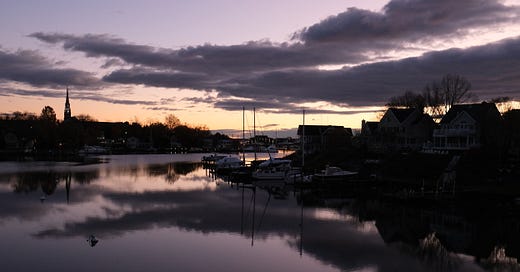Most people have more to do than time allows. I am incredibly lucky to have the opportunity to read things to keep current or because I think they are worth my time. I could just watch the beauty of the world pass by
.
People wonder what is going on in China. I have noted over the past couple of days, I think we probably have some broad sense of the outcome (unlikely an overthrow of the Chinese Communist Party [CCP] or Xi Jinping as its leader) but not the timing. The reports of protests continue but the alleged passivity of the ubiquituous ‘minders’ in the Middle Kingdom seems less the case today than yesterday. I am absolutely certain, however, that Zhongnanhai, the leadership compound in Beijing, is burning late night fires as they worry about criticism and civil disobedience.
Beyond the protests, what else is going on there? Books on China are proliferating, seemingly hourly. Most of them center on the China threat to the rest of the world. I am more interested in what is going on inside of China because that story affects everything else. I have always found the most important questions about any country to be its internal contradictions, as true in Botswana, the United States, or Lebanon. Those disconnects and challenges are what leaders in a society worry about far more often than they do relations with other states, even the United States.
Frank Dikotter is a Dutch scholar in Hong Kong. He is best known for a trilogy on the first years of Mao’s reign, detailing the brutality and cynical choices made by the CCP consolidating power. He recently published China After Mao Frank Dikotter, "China After Mao: The Rise of a Superpower, New York: Bloomsbury, 2022to examine the period when the Party faced a future after the ‘Great Helmsman’ passed away in 1976. Dikotter is known for mining archives in more remote areas of the country rather than those at the Beijing level, an interesting phenomenon in a state constantly rewriting history and working seemingly mercilessly to control the narrative of its relationship with those it rules. He says in his forward that getting access to those archives is already much harder than before; I see this as consistent with my prior observations about Xi Jinping working assiduously to prevent steps by which the CCP could face accountability for its actions.
If you are not a China-centric observer, Dikotter’s work may interest you. He writes clearly and evocatively about a period (~~1975 to the 2010s) during which decisions about how to pursue economic and political choices differed from Mao’s approach. The CCP set forth to support ‘Four Modernisations’ which have, among other things, brought China to its strength and its frustrations in 2022. Dikotter casts his eye in this book on that process and the personalitie—and always the role of the Party itself.
One of my favourite China scholars reminded me this morning that Dikotter’s work is pretty straightforward today but I note the story is less known outside the China-watching community. I agree with her but also know that most non-specialists really cannot recount why the decisions under the ‘Four Modernisations’ had the effects we see today. If you are unaware of this history beyond the name Deng Xiaoping, it might be worth your time to read this volume.
I am also recommending a somewhat heavier tome, James Belich’s The World the Plague Made James Belich, 'The World the Plague Made', Princeton: Princeton University Press, 2022We are all exhausted by the COVID pandemic but Belich’s volume reminds us that we don’t have all the answers about the Black Death from more than six and a half centuries ago; we should not be surprised we don’t entirely understand what is still unfolding before us across the globe. Again, clearly written with careful citations and acknowledgements of what he does or does not find persuasive arguments.
I have other histories I look forward to reading on more topics than I want to admit but these are two that I would recommend you might find of some value. I am not endorsing the specific texts but I am certainly pushing you to read beyond your comfort zone if you have time! FIN





i hit send too quickly today! The Dikotter trilogy is worth reading if you are interested in consolidation of power. See THE TRAGEDY OF LIBERATION (2013), MAO'S GREAT FAMINE (2010), and THE CULTURAL REVOLUTION (2017). Another book that fits nicely with CHINA AFTER MAO is Richard McGregor's THE PARTY (2010)
what have YOU been reading recently?
On China or anything else.
I'm not a China scholar in any way! But I appreciate these recommendations, and am reading more and more in an attempt to understand what we need to have as additional resources at NDU to ensure our leaders are well educated on these topics. What did you think of this article? https://www.foreignaffairs.com/china/xi-jinping-his-own-words - I find it fascinating that Xi Jinping's addresses are kept secret for years! I had no idea this was how he operated or China took his guidance.